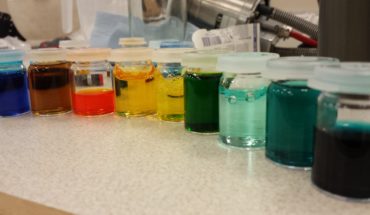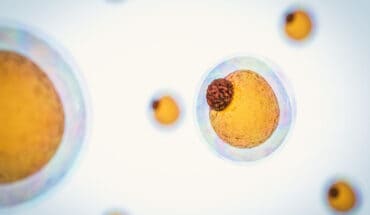Researchers from the Galien Institute at Paris-Saclay University/ CNRS have developed nanoparticles that are effective in the treatment of severe inflammatory processes which can be found in many pathologies, such as Covid-19 infections. The study was published in the journal Science Advances on Monday 27 April, 2020.
Uncontrolled inflammatory processes are a major health concern because they are the origin of many severe or even lethal pathologies. For example, some Covid-19 patients experience a deterioration in their condition after an uncontrolled inflammatory reaction that leads to respiratory failure, sometimes requiring intubation and resuscitation or even death.
Currently, very few treatments are effective in controlling such severe inflammation, and those that do exist have undesirable side effects. Studies carried out over the last two decades tend to show that these states of prolonged severe inflammation are caused by a combination of two factors: inflammation combined with oxidative stress, contributing to feed each other and thus establishing a vicious circle capable of perpetuating and propagating the inflammatory response.
Nanomedecine helps limit side effects
The introduction of nanotechnologies in pharmacology, of which there are teams of specialists at the Galien Institute, has revolutionized the administration of drugs, in particular thanks to the principle of vectorization. Drug delivery is based on the principle of “targeting”, which consists of encapsulating the drug in a nanovector (most often a liposome, nanoparticle or micelle), so that it delivers its active principle only after reaching the target tissue and penetrates the diseased cell.
Generally between 20 and 300 nanometres, the small size of these therapeutic devices allows them to protect the active ingredient, cross certain biological barriers and deliver the drug more effectively into the body. The objective of targeting is therefore to improve the effectiveness of the treatments while obtaining better control of their therapeutic index, which makes it possible to reduce their toxicity and limit their side effects.
In collaboration with the Plateforme d’Histologie Immunopathologie de Clamart (PHIC), also part of Paris-Saclay University, and the Institut Paris Saclay Innovation thérapeutique (Univ. Paris-Saclay, Inserm, CNRS), researchers at the Galien Institute have combined different active ingredients within the same nanoparticle by conjugating squalene, a natural lipid, with adenosine, an immunomodulator, and then combining it with alpha-tocopherol, a natural antioxidant.
The researchers’ in vivo study in an animal model of septic shock demonstrated that by exploiting dysfunctions of the endothelial barrier at the sites of acute inflammation, these multi-drug nanoparticles could deliver therapeutic agents in a targeted manner, abrogated the hyper-inflammatory response and resulted in significantly improved chances of survival in treated animals.
These promising results should now be complemented by other clinical studies to hopefully eventually lead to the development of effective new drugs to combat severe and uncontrolled inflammation and open up new avenues to mitigate paradoxical inflammatory reactions such as those associated with Covid-19 infections.
Photo: Kateryna Kon/ Shutterstock.com
- Gut microbiome could delay onset of type 1 diabetes - 3rd April 2025
- The da Vinci 5 Robot Is Set To Transform Bariatric Care: - 31st March 2025
- Beyond money: the hidden drivers fuelling child food insecurity - 31st March 2025






